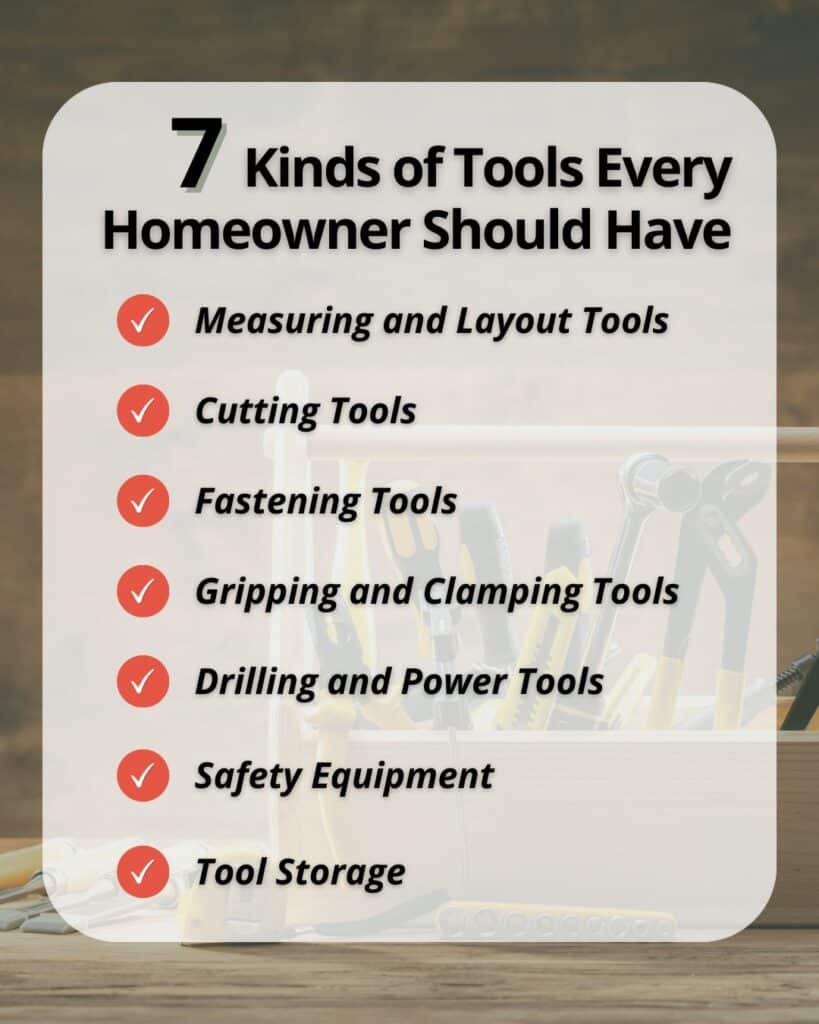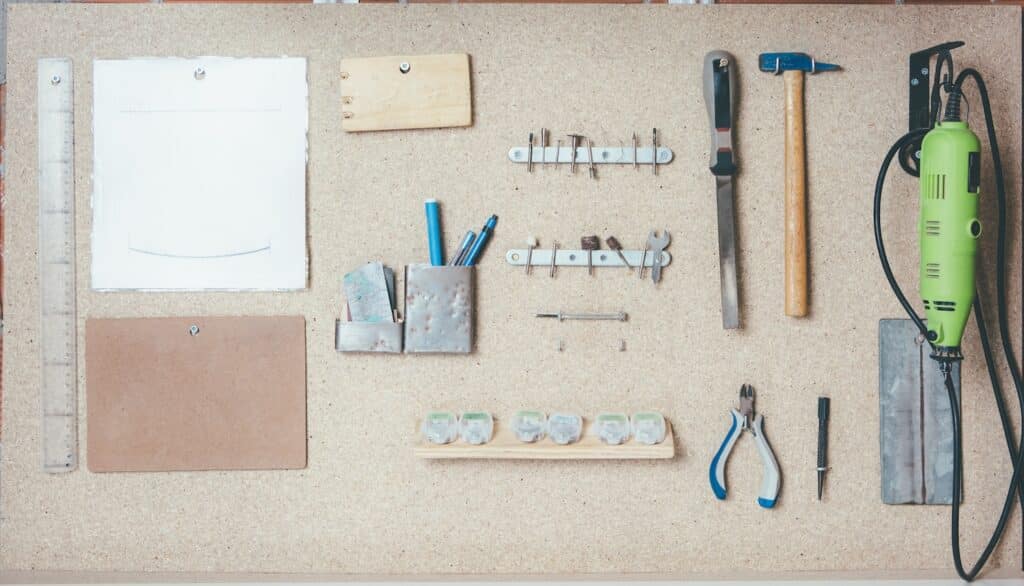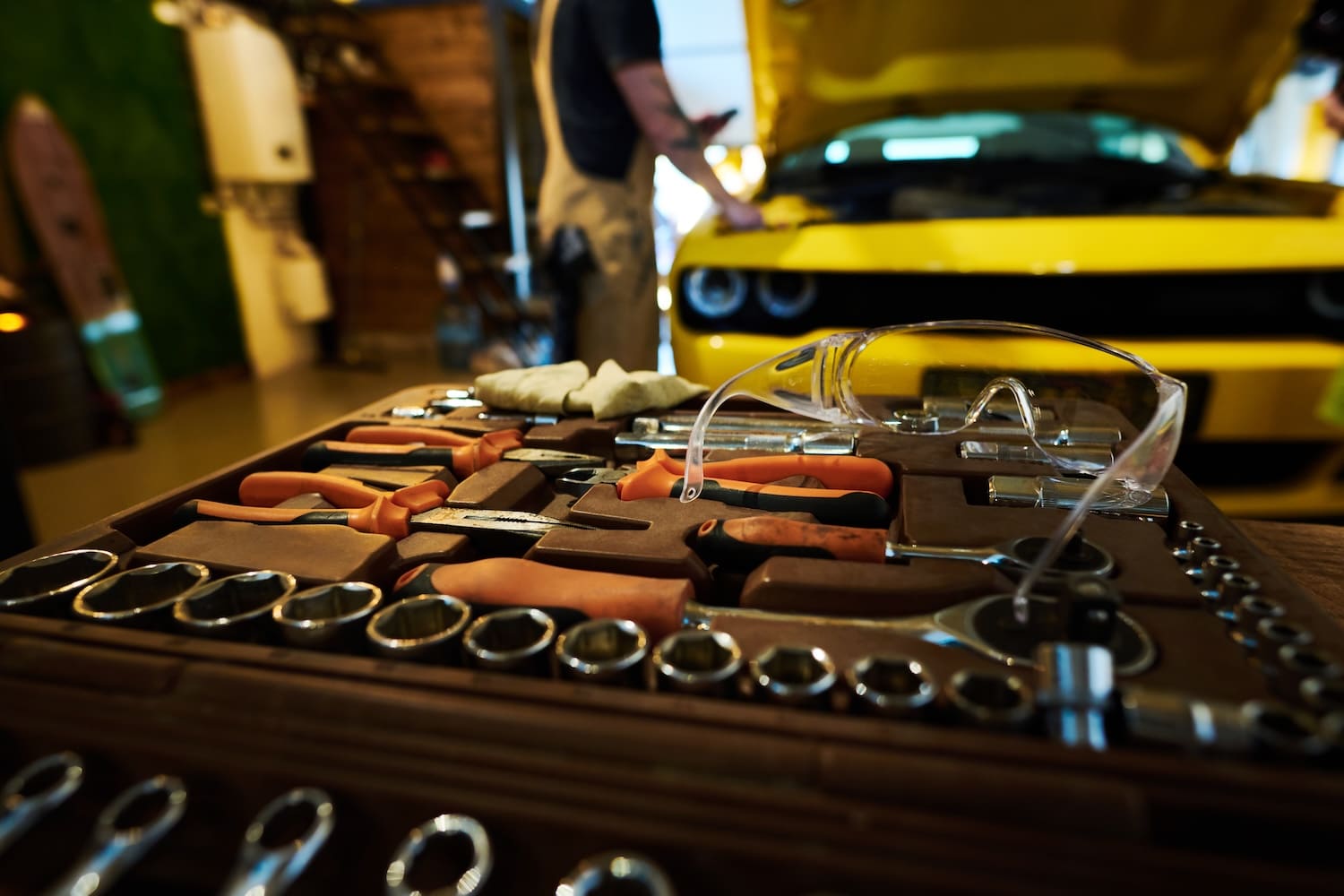Every home needs a little upkeep, and sooner or later, something will need fixing. Maybe it’s a wobbly table leg, a loose doorknob, or a picture that just won’t hang straight. That’s why the owner of every home should have a solid set of basic construction tools.
The right tools make everyday maintenance easier, help prevent costly repairs, and give you the confidence to handle small fixes on your own. Whether you’re patching up a hole in the wall or assembling furniture, future-you will be glad to have these essentials on hand.
Table of Contents
ToggleWhen Shopping for Tools
Walking into a hardware store without a plan can be overwhelming. There are endless options, from budget-friendly sets to high-end professional gear. The key is choosing tools that will last and actually make home maintenance easier.
- Look for Durability – Well-made tools last longer and work better. Heavy-duty steel and solid grips make a difference, especially for frequently used items like pliers and wrenches.
- Consider Comfort – Tools should feel comfortable in your hand. A screwdriver with an ergonomic grip or a hammer with a balanced weight can make a big difference during a project.
- Skip the Gimmicks – Multi-tools and cheap combo sets often break or don’t work as well as single-purpose tools. A few high-quality tools will serve you better than a cluttered collection of gadgets.
- Plan for Storage – A good toolbox or wall-mounted rack keeps tools organized and easy to find. Digging through a messy drawer for one tool is never fun.
1. Measuring and Layout Tools
Good measurements make all the difference in home projects—everyone who owns a home should also be the owner of some of these construction and measurement tools.
Crooked shelves, misaligned frames, or furniture that doesn’t fit are all avoidable with the right tools.
- Tape Measure – Essential for checking dimensions before buying furniture, hanging decor, or planning DIY projects.
- Level – Prevents uneven shelves, fixtures, and picture frames. A basic bubble level works well, but a laser level adds precision.
- Speed Square – Handy for marking straight lines and angles, making tasks like cutting boards or installing trim easier.

2. Cutting Tools
Whether you’re opening packaging or working on home improvements, a few reliable cutting tools go a long way.
- Utility Knife – Great for cutting drywall, carpet, and boxes. Look for one with replaceable blades for long-term use.
- Handsaw – A simple, effective tool for cutting wood, plastic, or PVC pipes without needing power tools.
3. Fastening Tools
Loose hinges, furniture assembly, and small repairs are common in any home. These tools help secure everything in place.
- Hammer – A must-have for driving nails, small demolition tasks, and hanging decor. A claw hammer also helps with nail removal.
- Screwdriver Set – Covers everyday needs like tightening screws on cabinets, light switches, and appliances. A mix of flat-head and Phillips screwdrivers is best.
4. Gripping and Clamping Tools
Holding, twisting, and adjusting materials is much easier with the right gripping tools.
- Pliers – Ideal for gripping, twisting, and cutting small objects. Needle-nose pliers are especially helpful for electrical work and tight spaces.
- Adjustable Wrench – Works on nuts and bolts of different sizes, making it a versatile tool for plumbing and furniture repairs.
5. Drilling and Power Tools
While hand tools cover the basics, a few power tools make home maintenance faster and easier.
- Cordless Drill – Saves time on drilling holes and driving screws. A lightweight, rechargeable drill with multiple speed settings is best for homeowners.
- Drill Bit Set – Ensures you have the right bit for different materials like wood, drywall, and metal.
6. Safety Equipment
Even small home repairs come with risks. A few safety essentials help prevent injuries.
- Safety Glasses – Protects eyes from dust, debris, and flying particles while cutting or drilling.
- Work Gloves – Shields hands from splinters, blisters, and rough materials.
7. Tool Storage
Keeping tools organized saves time and frustration when you need them.
- Toolbox or Tool Bag – Keeps essentials in one place and prevents tools from getting lost or damaged.

Maintaining Your Collection
A good set of tools lasts for years if properly cared for. Keeping them clean and organized helps prevent rust, dull edges, and unnecessary wear.
- Wipe down tools after each use to remove dust, dirt, and moisture
- Store tools in a dry area to prevent rust and corrosion
- Keep cutting tools sharp for easier, safer use
- Check handles and grips for wear and replace when needed
- Organize tools so they’re easy to find, reducing the chance of losing or misplacing important items
Regular maintenance not only extends the life of your tools but also ensures they work properly when you need them.
When to Call a Professional
Having the right tools helps homeowners handle minor fixes, but some issues require an expert’s eye. While a loose doorknob or wobbly shelf is an easy DIY fix, certain home concerns aren’t always visible on the surface.
That’s where a professional home inspection comes in.
- Uncovering Hidden Issues – Some problems, like foundation cracks, moisture intrusion, or faulty wiring, aren’t obvious until they cause serious damage.
- Assessing Structural Concerns – Not every crack or uneven surface means trouble, but some do.
- Identifying Safety Risks – Electrical hazards, gas leaks, or plumbing failures can put your home and family at risk.
- Before Major Repairs or Renovations – If you’re planning big projects like remodeling a kitchen, finishing a basement, or repairing structural damage, an inspection provides a clear picture of what needs to be addressed first.
Conclusion
The right basic construction tools make being a homeowner easier, whether you’re tackling a small fix or have a weekend project. Investing in quality tools and keeping them in good condition ensures they’re always ready when you need them.
For anything beyond routine maintenance, a professional inspection can provide peace of mind. Tier 1 Pro Inspections helps homeowners identify potential issues early, ensuring their property stays safe, functional, and in top shape.

